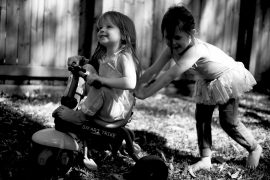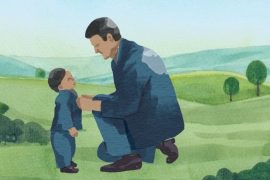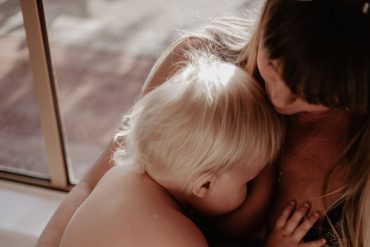By Kelly Eden
Before every Christmas and birthday when my kids were younger, we played a little game: The terrible presents game.
We took turns thinking of awful presents and pretending to give them to each other.
“Merry Christmas! Here’s my old smelly socks”
“I couldn’t think of what to get you, but you can have my broken toaster.”
The aim of the game was to find a way to be grateful and politely say thank you, as specifically and genuinely as possible, no matter what we received. We got pretty creative with it.
Teach gratitude that’s specific
I had a very proud mum moment when my 11-year-old daughter offered a pile of elephant poo and my seven-year-old replied with “Thanks so much! I’ve been needing some fertiliser for the garden!”
We made the specific-ness of the thankyou important. Specific thankyous are more thought out (and mean the kids don’t sound like little robots spouting out meaningless niceties just because Mummy told them to.)
An attitude of “Isn’t it great that someone was thinking of me and bought me a gift?” is much better than the opposite of gratitude – entitlement.
So even if they can’t think of a specific reason to be thankful for the gift, they can be grateful that someone loved them enough to bother getting them a present at all.
We pretended to give double ups of toys they already owned, boring gifts and ridiculous gifts. It’s a fun game, but I also had an agenda. I wanted to ensure that no matter what a friend or relative gave my children, they would respond with a smile and a thankyou.
There’s nothing more embarrassing than watching your child melt into a bratty tantrum at the family Christmas party because they didn’t get what they wanted.
Why do manners matter?
Well-mannered kids are lovely to be around. Thankyous and pleases are respectful, and everyone feels better when people are polite. Thankyous even strengthen our social and emotional bonds with people.
Children get a lot of positive feedback from adults when they use manners. But learning to be thankful actually benefits our kids in more ways than just being socially acceptable humans.
Teaching our children thankfulness, or gratitude, is one of the ways we can encourage them to develop into healthy, happy adults who are much more resilient in difficult times.
A number of research studies have found some amazing benefits to practising gratitude:
- Stronger immune systems and less depression;
- More joy, optimism, and happiness;
- Stronger relationships and more generous behaviour;
- Fewer feelings of loneliness and isolation.
– Expanding the Science and Practice of Gratitude Project
One study on children and gratitude by researchers Jeffrey Froh and Giacomo Bono, found that grateful kids, when compared to their less grateful peers, were:
- happier
- more optimistic
- had better social support
- more satisfied with their school, family, community, friends, and themselves overall.
- And gave more emotional support to others.











